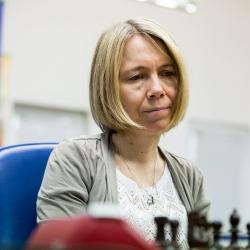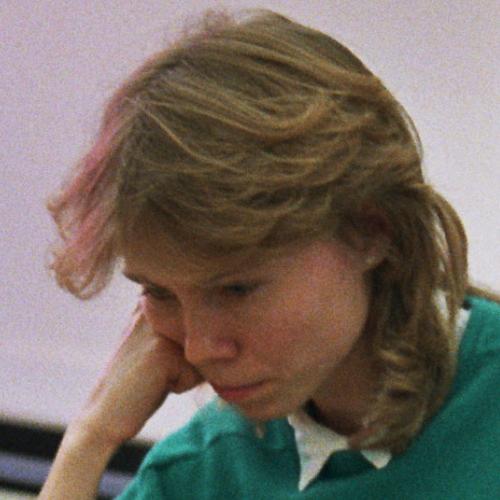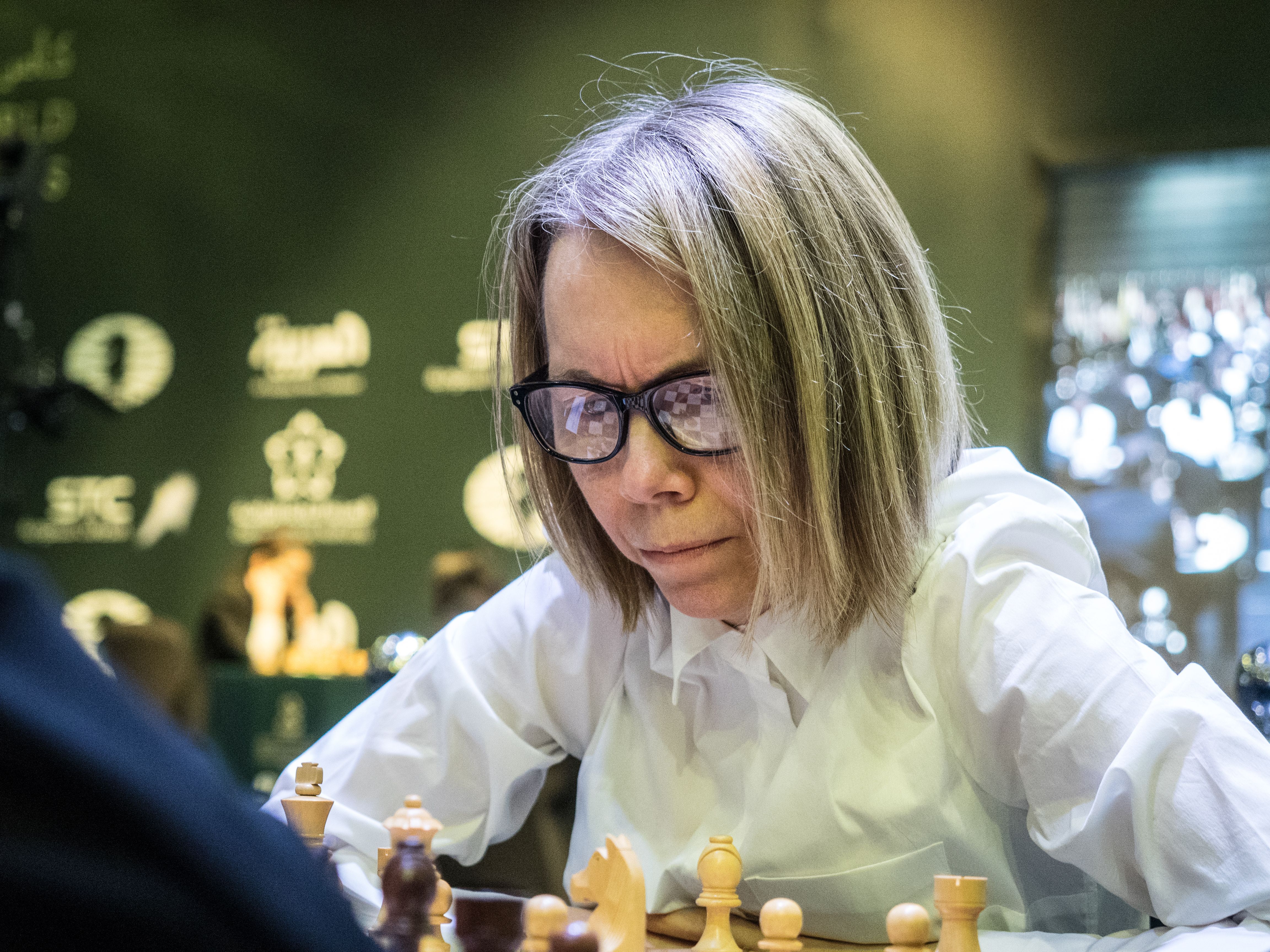GM Pia Cramling

Bio
When you think of Scandinavian chess greats, world champion GM Magnus Carlsen of Norway is probably the first who comes to mind. Denmark had the great GM Bent Larsen in his prime in the 1960s and 1970s, and Aron Nimzowitsch had immigrated there a half-century earlier. GM Johann Hjartarson of Iceland reached #11 in the world in 1989. Sweden, of course, has GM Ulf Andersson, current top-100 GM Nils Grandelius...and the fifth-ever female grandmaster, Pia Cramling.
Early Life And Career
Cramling was born on April 23, 1963 (that date may look familiar, as it was 10 days after world champion GM Garry Kasparov was born). Cramling was born in Stockholm, the capital.
She joined a chess club in the Stockholm area when she was 10 and played in her first tournament at 12. Within just three years, Cramling was part of Sweden’s team at the women’s Olympiad, where she scored 9/10.
1980s
Within 10 years, she was an IM, reaching that level in 1983. Perhaps her most famous game came in 1984, when she defeated GM Viktor Korchnoi, who reportedly did not take the loss well. Korchnoi had just challenged GM Anatoly Karpov for the world title three years earlier.
In 1985 Cramling made her first major push for the women’s world championship. At the time, both the open/men’s and women’s championships followed the same method, with a series of Zonal and Interzonal tournaments determining the field for a Candidates tournament. After placing third in an Interzonal at Havana in 1985, Cramling came in fourth place at the Candidates in Malmo in her home country. That made her the highest-placing of the three non-Soviet participants.
Much of Cramling’s success in this decade came at the Olympiad. At Thessaloniki in 1984, she had the best performance after any first-board player with a score of 10.5/13. She repeated the feat in 1988, this time with a score of 12.5/14.

In 1989, Cramling drew in her only official career matchup against her fellow national Andersson.
1990s
Cramling made her final GM norm in 1992, becoming only the fifth woman in history to reach grandmaster status, following Nona Gaprindashvili and Maia Chiburdanidze of Georgia and sisters Susan and Judit Polgar of Hungary. When the 20th century ended, Cramling was still one of just six, with Xie Jun having joined the ranks. As of 2020, there are 37.
By this point Cramling wasn’t just one of the best women players in Sweden, she was one of the country’s best players, period. Four times from 1990-2000, she represented Sweden in the open section of the Olympiad. Cramling’s greatest individual success in the event came in 1992, when she scored 7.5/10, the fourth-best performance on board four. By 1996, only Andersson was ahead of her on the Swedish depth chart. With Cramling on the second board, they finished 11th.
In 1993, Cramling placed sixth at the Interzonal in Jakarta, following with a third-place finish at the Candidates in Tilburg, the Netherlands. This earned her a default bid into the next Candidates (the women’s championship did not split when Kasparov and GM Nigel Short left FIDE in 1993), but she placed only eighth in 1997 at Groningen.
21st Century
One of Cramling’s best individual tournaments ever came at the 2003 European Women’s Individual Championship, where she won gold in Silviri, Turkey, with an 8.5/11 score. She won the same event again in 2010 at Rijeka, Croatia, scoring 9 points out of 11. Cramling also impressed at the open Gibtelecom tournament in 2009 with 7/10 to tie for seventh in a field of 191.
Her fortune in world championships, now a knockout format, has been less successful. Without reaching the quarterfinal, she played in the new format in 2000 (second round), 2004 (third round), and 2006 (second round). In 2008, she made it to the semifinal before falling to GM Alexandra Kosteniuk. Cramling again made the semifinal in 2015, losing there to WGM Natalia Pogonina. Finally, in 2017, Cramling lost once again to Kosteniuk.

Cramling also returned to more Olympiads, now back on the women’s team, in 2004, 2008, and 2014. Playing the first board each time, she had the third-best individual board performance in the 2014 Olympiad, but Sweden finished only 28th in the event. Despite Cramling's exceptional play, the country has not had major success in team events.
Legacy
Cramling remains the only Swedish woman to become a grandmaster, indeed the only one from any Scandinavian country. In seven women’s Olympiads, she won 57 games and lost only three. About the only achievement missing from her resume is a world championship, but she won the European championship twice.
Cramling did not come from a chess family, but she helped create one. To her and her husband, GM Juan Manuel Bellon Lopez of Spain, a daughter was born in 2002. WFM Anna Cramling was on the fourth board for the Swedish team at the 2016 Olympiad and is also a Chess.com member.
Using 1.d4 as White and playing the Sicilian against 1.e4 and the Slav or Nimzo-Indian against 1.d4, Cramling has crafted one of the best chess careers in her nation’s history.


